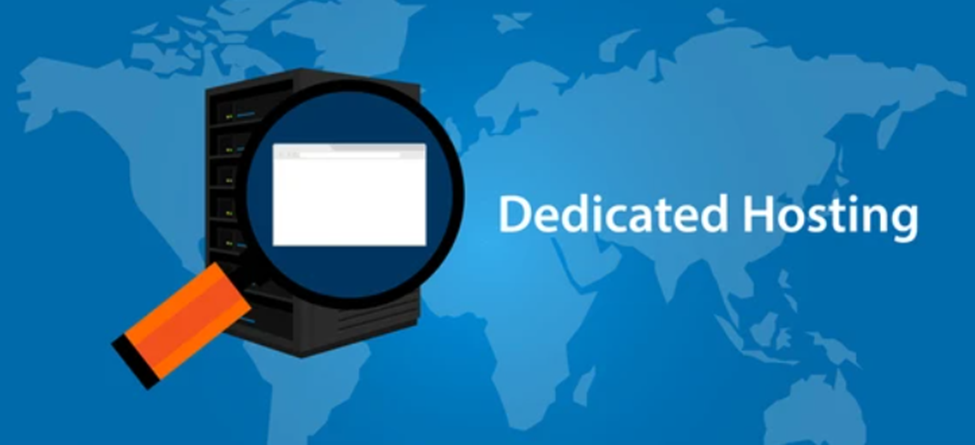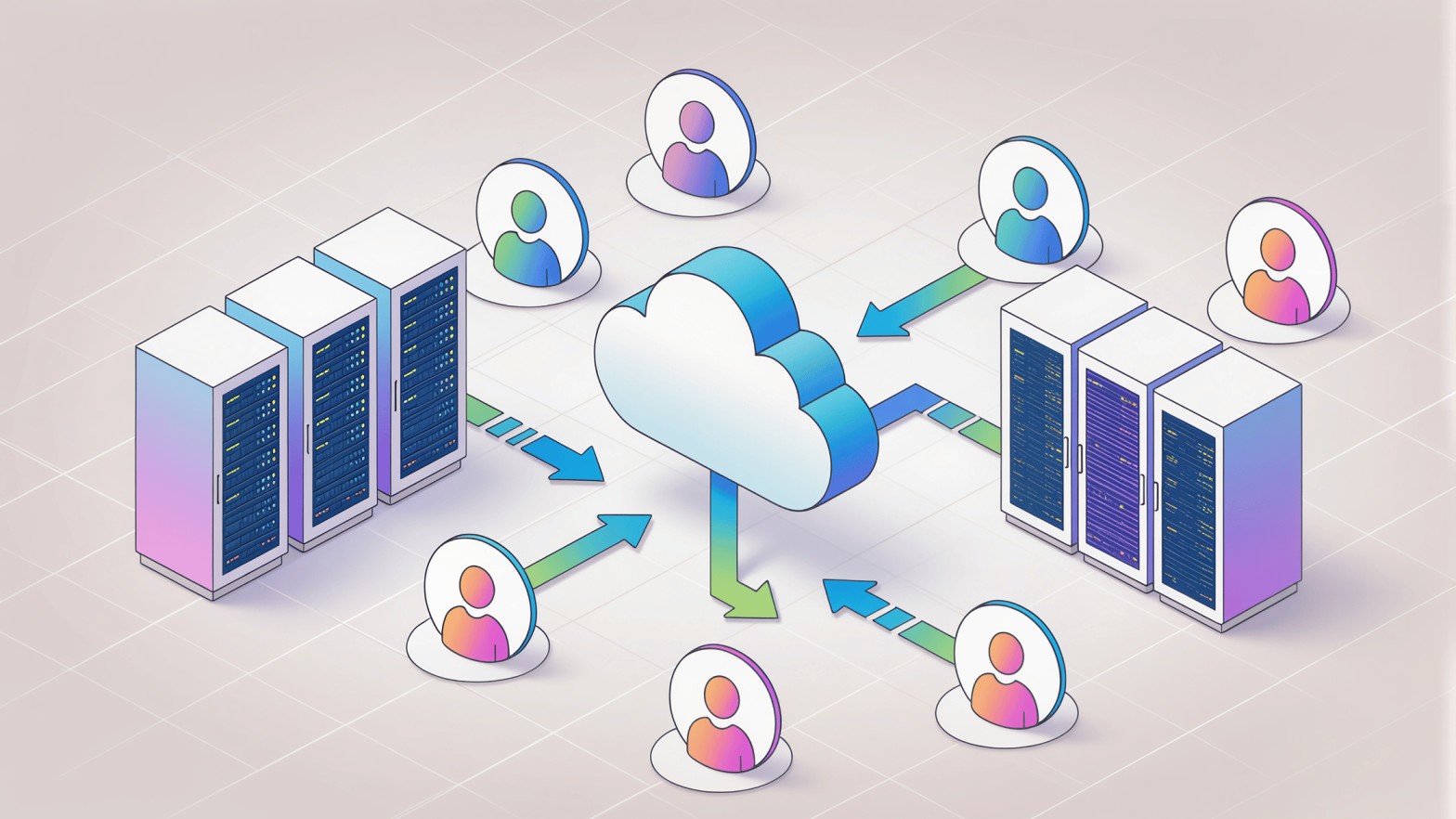What is a Dedicated Server Benefits & Use Cases?

Strong 8k brings an ultra-HD IPTV experience to your living room and your pocket.
In the world of web hosting and computing, a dedicated server is a powerful and exclusive web hosting option that provides users with complete control over a physical server. Unlike shared hosting, where multiple users share resources, or virtual private servers (VPS), where a server is divided into virtual compartments, a dedicated server is solely allocated to one client. This exclusivity provides unparalleled performance, security, and flexibility.
Dedicated servers are designed to cater to businesses and enterprises that require robust computing power, extensive storage capacity, and reliable network connectivity. These servers are often housed in state-of-the-art data centers equipped with redundant power supplies, high-speed internet connections, and advanced cooling systems to ensure optimal performance and uptime. Additionally, dedicated servers can be customized with specific hardware configurations, operating systems, and security protocols to meet the unique needs of different industries.
A dedicated server's isolation from other users eliminates the risks associated with resource contention, such as slow website speeds or service interruptions due to high traffic spikes. It also enhances data security, as no other clients have access to the server, reducing the chances of cyber threats or data breaches. This makes dedicated servers an ideal choice for hosting high-traffic websites, running complex applications, managing large databases, and supporting resource-intensive business operations.
In this article, we will explore what a dedicated server is, its benefits, and the various use cases for which it is ideal. Whether you are an enterprise looking for a secure hosting solution or a developer requiring high-performance computing, understanding dedicated servers can help you make an informed decision for your hosting needs.
What is a Dedicated Server?
A dedicated server is a powerful physical machine that is exclusively leased or owned by a single client, providing complete control over computing resources without interference from other users. This means that the server’s CPU, RAM, storage space, and bandwidth are entirely dedicated to one user, ensuring optimal performance, security, and reliability. Unlike shared hosting, where multiple websites operate on the same server and compete for resources, a dedicated server eliminates resource contention, making it an ideal solution for businesses with high-traffic websites, complex applications, and critical workloads.
Dedicated servers are widely used by enterprises that demand high-performance computing for data processing, hosting mission-critical applications, and maintaining large databases. Organizations in sectors such as e-commerce, gaming, finance, healthcare, and cloud services rely on dedicated servers to ensure seamless operations, secure transactions, and fast processing speeds. The ability to customize a dedicated server allows businesses to configure the hardware and software environment to meet their unique requirements, further enhancing efficiency and performance.
When opting for a dedicated server, clients can choose between managed and unmanaged solutions. Managed dedicated servers are ideal for businesses that lack in-house IT expertise, as the web hosting provider takes care of server maintenance, security updates, software installations, and performance optimizations. This ensures smooth operation and minimizes downtime, allowing businesses to focus on their core activities. On the other hand, unmanaged dedicated servers provide full administrative control to the client, who is responsible for configuring the server, installing applications, and implementing security measures. This option is preferred by tech-savvy users and IT professionals who require complete autonomy over their hosting environment.
By offering superior security, reliability, and customization, dedicated servers empower businesses to operate with greater efficiency and confidence. Whether hosting a high-traffic website, managing enterprise applications, or running data-intensive computations, dedicated servers provide the stability and scalability necessary to support long-term business growth.
Benefits of a Dedicated Server-
1. Exclusive Resources & High Performance
One of the primary advantages of a dedicated server is the exclusive access to computing resources. Unlike shared hosting, where multiple users compete for CPU, memory, and storage, a dedicated server ensures optimal performance without resource contention. With all resources allocated to a single user, applications and websites run faster, experience fewer slowdowns, and can handle higher traffic loads. This is particularly beneficial for businesses that require extensive computing power for real-time processing, data analytics, or high-performance applications.
2. Enhanced Security
Security is a significant concern for businesses handling sensitive data. Dedicated servers offer enhanced security features such as firewalls, intrusion detection, and DDoS protection. Since the server is not shared, there is a reduced risk of malware infections or cyber-attacks originating from neighboring users. Businesses can also implement their own security protocols, such as data encryption, advanced authentication measures, and access controls, to ensure a robust defense against cyber threats.
3. Customization & Flexibility
Dedicated servers provide full root or administrative access, allowing users to install and configure any software or applications they require. This level of customization is not possible with shared hosting or VPS hosting, where limitations are imposed by the hosting provider. Businesses can choose their preferred operating system, control panel, and security configurations, ensuring that the server environment aligns with their specific requirements.
4. Reliability & Uptime
For businesses that depend on online services, reliability is crucial. Dedicated servers offer high uptime guarantees, often 99.9% or higher, ensuring that websites and applications remain accessible to users without interruptions. Since there are no resource-sharing issues, performance remains consistent even during peak usage periods. Many dedicated hosting providers also offer redundant power supplies, advanced cooling systems, and network monitoring to further enhance server reliability.
5. Scalability
A dedicated server allows businesses to scale their operations effortlessly. Unlike shared hosting, where resources are limited, a dedicated server can handle increased traffic and higher workloads by upgrading hardware components or adding more servers.
6. Improved Website Speed
Website speed plays a crucial role in user experience and search engine rankings. Since dedicated servers provide high-performance hardware and exclusive resources, they significantly improve page loading times and overall website responsiveness.
7. No Noisy Neighbors
In shared hosting environments, resource-heavy users can impact server performance for others. With a dedicated server, there are no noisy neighbors to compete for bandwidth, processing power, or disk space, ensuring optimal performance at all times.
8. Compliance with Regulatory Standards
For businesses that must comply with regulations like GDPR, HIPAA, or PCI-DSS, dedicated servers offer the security and control necessary to meet these compliance requirements. Hosting sensitive customer data on a dedicated server helps organizations maintain regulatory standards more effectively.
9. Better Support & Maintenance
Many best web hosting providers offer 24/7 technical support and monitoring services for dedicated servers. This ensures quick resolution of technical issues, minimizing downtime and disruptions to business operations.
10. Cost-Effectiveness for Large-Scale Operations
While dedicated servers have a higher upfront cost compared to shared hosting, they offer long-term cost savings for large businesses. The enhanced performance, security, and reliability can lead to better business efficiency and increased revenue.
Use Cases for Dedicated Servers-
Dedicated servers are ideal for a variety of applications. Below are some common use cases where dedicated hosting is beneficial:
1. Hosting High-Traffic Websites
Large businesses, media websites, and e-commerce stores with heavy traffic benefit from dedicated servers. High-speed processing, increased storage capacity, and robust security make them an ideal choice for handling thousands of concurrent visitors.
2. Game Servers
Gaming companies and enthusiasts often require dedicated servers to host multiplayer games. Dedicated servers ensure low latency, high-speed connectivity, and uninterrupted gaming experiences.
3. Big Data & Analytics
Organizations processing large volumes of data need high-performance computing capabilities. Dedicated servers provide the necessary resources for running complex data analysis, machine learning models, and artificial intelligence applications.
4. Streaming & Media Hosting
Video streaming services, music platforms, and content delivery networks (CDNs) require robust servers to handle high-bandwidth requirements. Dedicated servers allow seamless streaming with minimal buffering and lag.
5. Enterprise Applications & SaaS Platforms
Companies that offer Software as a Service (SaaS) solutions or run critical enterprise applications rely on dedicated servers for high availability, security, and performance.
6. Cloud Hosting & Virtualization
Businesses can use dedicated servers to create private clouds or deploy multiple virtual machines. This setup offers greater control and security compared to public cloud environments.
7. E-Commerce & Online Stores
E-commerce websites, especially those with high transaction volumes, need dedicated servers to ensure fast loading times, secure payment processing, and a seamless user experience.
8. Financial & Banking Services
Banks and financial institutions require secure, high-performance servers to handle online banking transactions, financial modeling, and secure data storage.
9. Medical & Healthcare Applications
Hospitals, research institutions, and healthcare providers use dedicated servers for storing and processing sensitive patient data while ensuring HIPAA compliance.
10. Custom Business Applications
Companies running proprietary software or industry-specific applications benefit from the control and customization offered by dedicated servers.
Conclusion-
Dedicated servers provide businesses and enterprises with the performance, security, and scalability needed for mission-critical applications. Whether you run a high-traffic website, host multiplayer games, process big data, or offer SaaS solutions, a dedicated server ensures reliability and optimal performance. While the cost of dedicated hosting is higher than shared or VPS hosting, the benefits outweigh the investment, making it a preferred choice for businesses that prioritize performance and security. If your business demands exclusive resources, advanced security, and full customization, a dedicated server is an excellent choice to consider.
Note: IndiBlogHub features both user-submitted and editorial content. We do not verify third-party contributions. Read our Disclaimer and Privacy Policyfor details.







